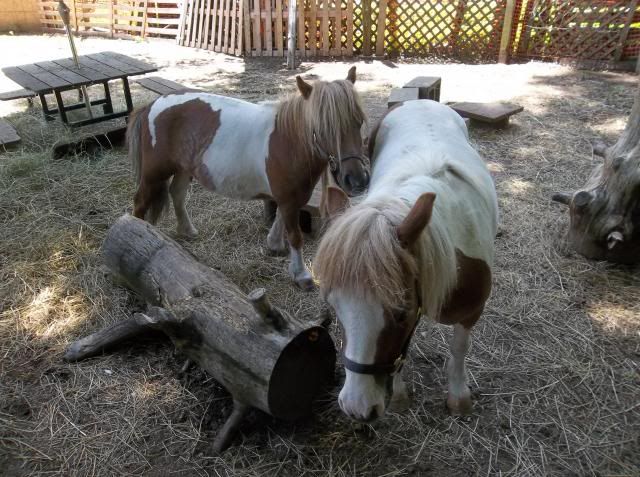stano40
Member
- Joined
- Jun 30, 2014
- Messages
- 15
- Reaction score
- 4
Since getting my girls I have been given a lot of different advise from "BEWARE OF FOUNDERING". Among the advise is to only feed one flake of hay for the two mares I have and be careful of fresh grass's and not to let them get too much.
I know buttercups are not good for horses and I even found some info about safe veggies to give, such as: rutabaga, carrots, broccoli, beetroot, celery, cabbage leaves, pumpkin, squash, parsnips, peas and green beans.
But what does everyone feed to prevent foundering and obesity with Mini's. Are veggies safe to use as a treat? What amounts of hay should be given and/or does this depend on the mini's condition. Is it safe to let them forage for themselves in their paddock?
bob

I know buttercups are not good for horses and I even found some info about safe veggies to give, such as: rutabaga, carrots, broccoli, beetroot, celery, cabbage leaves, pumpkin, squash, parsnips, peas and green beans.
But what does everyone feed to prevent foundering and obesity with Mini's. Are veggies safe to use as a treat? What amounts of hay should be given and/or does this depend on the mini's condition. Is it safe to let them forage for themselves in their paddock?
bob




